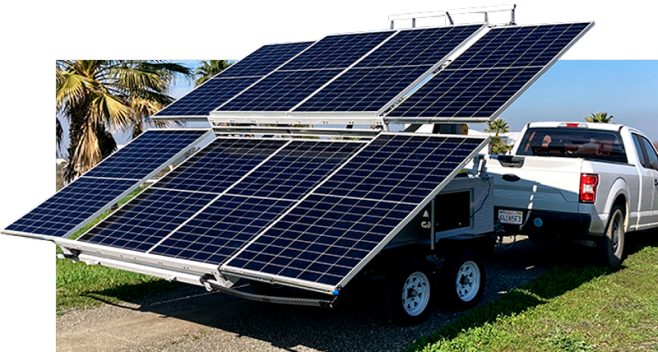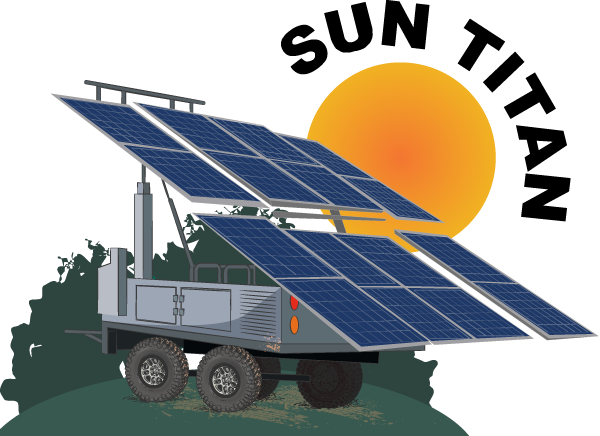
Section 179 is for Any AG Business Owner
If you’re a farmer, rancher or business owner who is actively marketing and selling their wares (like beef from livestock, vegetable boxes from your fields) then according to the IRS you qualify for tax deductions for agricultural farm equipment that you purchase during the fiscal year. Any Sun Titan Solar Trailer falls into the category of agricultural farm equipment. All of the system component costs are covered including the trailer itself, solar panels, controller, batteries and internal wiring.IRS Section 179
Depreciating Property
2024 is a special year, as Section 179 has been updated to allow 100% UP FRONT DEDUCTIONS from your tax bill. According to Section179.org “That means that if you buy (or lease) a piece of qualifying equipment, you can deduct the FULL PURCHASE PRICE from your gross income”. If you purchase a Sun Titan Solar Trailer for $20,000, you can write off the entire $20,000 this year!
In previous years, farm equipment would be required to depreciate over time. Under depreciation, your deductions are scheduled out over multiple years and the dollar amount is capped for example, you might have been limited to only claiming 20% of the $20,000 Sun Titan cost over a 5 year period, so $4000 in deductions in Tax Year 1, another $4000 in Tax Year 2, and so on.
Please consult with your personal tax professional for guidance on Section 179.
Take Advantage of New Inflation Reduction Act Tax Credit
Option B is for business owners, regular consumers and homeowners. In late 2022, the Inflation Reduction Act extended benefits from the Business Energy Investment Tax Credit, as well as added some new tax credits. Tax benefits are extended through 2032, meaning any Sun Titan Solar Trailer project could enjoy a 30% tax benefit on installed solar and battery storage equipment. The Inflation Reduction Act laid out that any solar system, whether connected to the grid or operating off-grid, is applicable to receive a 30% credit on taxes for the purchase price of the components, as long as that system is providing power for a “dwelling unit”. Sun Titan Trailers interprets this as, if there’s a solar trailer system providing power for a home in any way, its providing power for the dwelling unit. As always, consult your personal tax professional, but we think it’s a pretty clear case of eligibility. There is no maximum credit, write off as much as you want! The tricky part here is that only some components are eligible, including…- Solar PV panels, inverters, racking, balance-of-system equipment, and sales and use taxes on the equipment;
- CSP equipment necessary to generate electricity, heat or cool a structure, or to provide solar process heat;
- Installation costs and certain prorated indirect costs;
- Step-up transformers, circuit breakers, and surge arrestors;
- Energy storage devices that have a capacity rating of 5 kilowatt hours or greater (even if not charged with solar)
- For projects 5 MW or less, the tax basis can include the interconnection property costs spent by the project owner to enable distribution and transmission of the electricity produced or stored by the system—this can include costs that are incurred beyond the point at which the energy property interconnects to the distribution or transmission systems
Luckily, the Sun Titan Solar Trailer is an all-in-one unit, so the entirety of the system should be covered. Our minimum system build is 10kWh of battery storage, meeting the aforementioned requirements.
While Section 179 write offs apply to solar pump or solar power installations anywhere on the ranch or farm, the Inflation Reduction Act language requires the system to provide power to a “dwelling unit”. Any “dwelling unit” qualifies for the tax credit, including mobile homes, boats, homes, off-grid cabin or RVs. Your RV or off grid cabin must be accepted by the IRS as a second home for tax purposes to be valid for the credit.
Let’s look at the official language for what type of systems exactly qualify…
- Standalone (off-grid) PV systems installed after 12/31/2022 with at least 3kWh of storage capacity will be covered by the Solar ITC at 30%.
- Hybrid (grid-tied but also connected to battery storage) PV systems installed after 12/31/2022 are covered by the Solar ITC at 30% so long as these additional criteria are met:
- The PV and batteries were installed at the same time
- The storage capacity of the battery bank is at least 3kWh
- For grid-tied systems installed before 12/31/2021 that had battery storage added to them during 2022, the battery storage components likely qualify for the 30% rate.
- Standalone and Integrated Battery Storage. Any battery bank used for a “dwelling unit” is eligible for a tax credit, even if that batteries aren’t connected or charge by solar panels. Before the Inflation Reduction Act was passed, batteries had to be connected to a solar panel system in order to qualify for the federal solar tax credit. (You can claim the tax credit for batteries even if you buy and install them a year or more after you install the solar system.)
“(2) DEFINITION OF QUALIFIED BATTERY STORAGE TECHNOLOGY EXPENDITURE.—Paragraph (6) of section 25D(d) is amended to read as follows: ‘‘(6) QUALIFIED BATTERY STORAGE TECHNOLOGY EXPENDITURE.—The term ‘qualified battery storage technology expenditure’ means an expenditure for battery storage technology which— ‘‘(A) is installed in connection with a dwelling unit located in the United States and used as a residence by the taxpayer, and ‘‘(B) has a capacity of not less than 3 kilowatt hours.”

Which Sun Titan Systems Qualify for the Inflation Reduction Act 30% Tax Credit?
All of the Sun Titan Trailers are elegible for the 30% tax credit. All components are covered as well! All Sun Titan Battery Banks meet the 3kWh requirement.
How do I expense a Sun Titan Solar Trailer?
- Confirm you qualify for the 30% tax credit
- Collect receipts from your purchase (RPS can provide receipts and any other paperwork you require)
- Complete IRS 5956
- Add the credit to Form 1040

Important!
Sun Titan Trailers is a company dedicated to saving you fistfuls of cash, but we are not tax specialists! Every rancher, farmer, off-gridder, and homeowner will have different tax circumstances. Please consult with your dedicated tax professional to confirm eligibility write offs.

